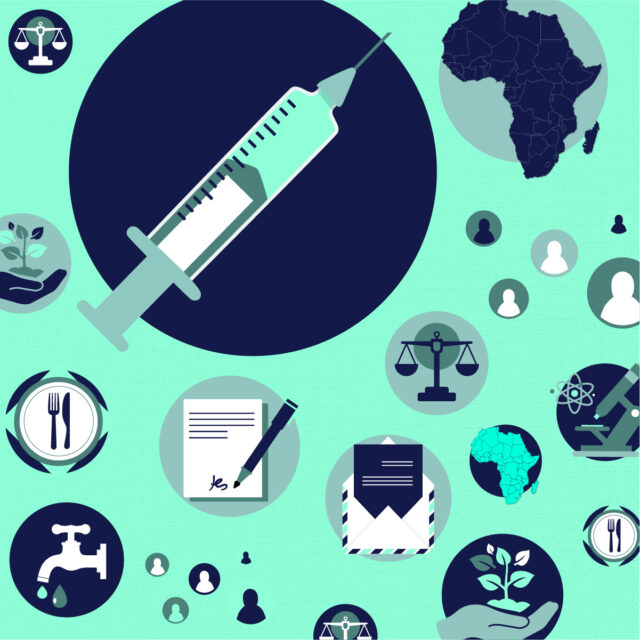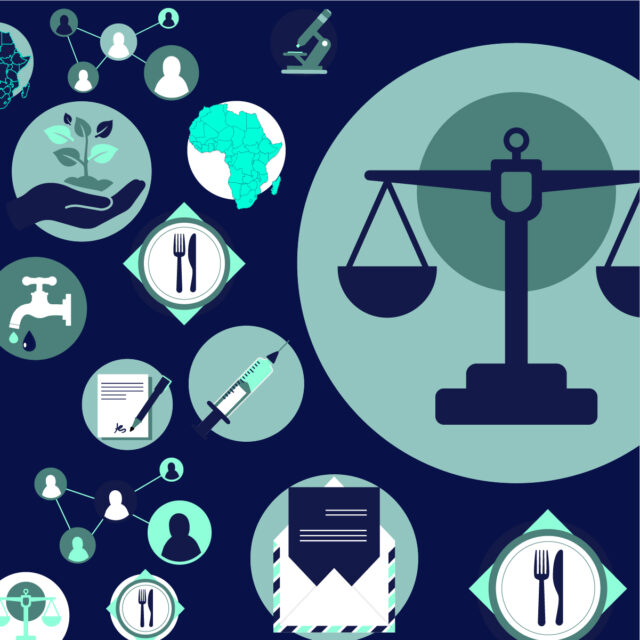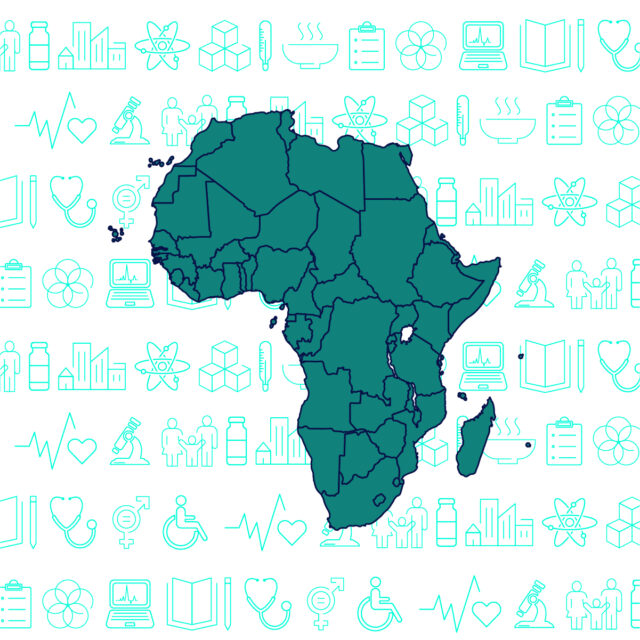Top news
Looming food crisis: Russia’s war against Ukraine is causing daily human tragedy inside the country. Experts warn that the war could soon have devastating impacts in far away places due to rising food prices and shortages. The World Food Programme, which gets half of the wheat it distributes in humanitarian crises from Ukraine, may need to find other suppliers. 44 million people globally are on the brink of famine and an additional 232 million are just one step behind. And now, the 3 million Ukrainians impacted by the war may also need WFP support.
Rock, meet hard place: This could also impact some African countries, given their heavy reliance on wheat imports from Ukraine and Russia. Wheat prices have skyrocketed by 35% since the war began and are double last March’s price. High food prices and ongoing droughts could plunge parts of Africa into a food crisis in as little as three months. That spells trouble for governments, like in Egypt and Tunisia, that heavily subsidize bread, a staple food. Rising food prices have a history of sparking unrest (e.g. Arab Spring). Government budgets are likely to come under strain, yet removing government subsidies is typically unpopular and can lead to protests. Lose-lose?
Guns for hire: The Wagner Group, a shadowy mercenary group that’s been labeled “the private army of Putin” and is believed to be fighting against Ukraine, is active in several African countries. The group has become a tool in Russia’s foreign policy expansion into Africa. It may be working: in the African countries where Wagner has surfaced — the Central African Republic, Libya, Madagascar, Mali, Mozambique, and Sudan — only Libya voted in favor of last week’s UN General Assembly resolution condemning the Russian attack on Ukraine; the others all abstained. The ruling junta in Mali is believed to be paying Wagner $10 million a month. The group has been accused of human rights abuses, and journalists investigating it have been killed.
UNdeniable: What’s going on at the UN? This week leaked emails revealed that UN officials had circulated guidance instructing staff to avoid referring to Russia’s attack on Ukraine as “war” or an “invasion,” and to instead use “conflict” or “military offensive”. The UN quickly reversed course following public backlash, but not before trying to reshape the public narrative. Russia, a powerful member of the UN’s Security Council, has banned its citizens from using those same words to refer to its invasion. In a separate incident, the UN Food and Agriculture Organization is reportedly withholding an “alarming” report that highlights the impending international food crisis resulting from Russia’s invasion of Ukraine in an effort to appease China. 🤦🏾♀️
IWD’d: After several protests across the country, Nigeria’s House of Representatives rescinded its decision a week earlier to reject three gender equity bills. It will reconsider the bills at a parliamentary session next month. The bills would increase female legislative representation to 35% (it’s currently 4%), reserve 35% of political party leadership for women, and give a woman legal rights to her husband’s estate after five years of marriage. The House’s reversal happened on International Women’s Day {chef’s kiss}.
Somber anniversary: The pandemic’s official death toll surpassed 6 million known deaths this week, just in time for COVID’s 2-year anniversary as a global pandemic. But the actual toll could be four times higher, at 23.6 million deaths — calculated by using excess death estimates. That estimate means COVID-19 has been deadlier than World War I, the world’s fifth deadliest conflict. COVID-19’s death toll may be as much as four times higher in lower-income countries than rich ones. More than one year after vaccines first became available, the world is averaging more than 7,000 official COVID deaths a day.
Cognitive dissonance: COVID-19 may cause loss of gray matter and tissue damage in the brain, according to a new study. While it’s too soon to know the cognitive or long-term impacts, the study highlights how little we know about the disease’s long-term health outcomes. Previous studies have raised concerns that even mild COVID-19 cases may be responsible for neurological damage, heart disease, and mental health issues. As many countries ease restrictions, the pandemic’s true toll remains a mystery. And, scientists warn that the next variant could be more deadly.
US leadership failure: On Wednesday, the US House of Representatives stripped $5 billion in global COVID financing from a funding bill at the 11th hour. The Biden administration requested the $5 billion to help provide COVID vaccines, drugs, and tests to poor countries. The House also failed to include $20 billion in SDRs reallocation to poor countries in the bill. It’s a stunning failure of US leadership at a time when 3 billion people — primarily in less wealthy countries — remain unvaccinated, while rich vaccinated countries increasingly act like the pandemic is over.
Library is life: At this week’s Global Pandemic Preparedness Summit, donors pledged $1.5 billion to help the Coalition for Epidemic Preparedness Innovations (CEPI) achieve its plan to develop safe and effective vaccines within 100 days of the detection of an epidemic or pandemic threat. $3.5 billion is needed to enable CEPI to create a library of vaccines for every single family of viruses. Once funded, it could take as little as five years to build the library. Meanwhile, British scientists have identified 16 genes that predispose people to serious COVID illness, which could aid in the development of tests and treatments for future viral infections.
Moderna steps up: Moderna has pledged to never enforce its coronavirus patents in 92 low- and middle-income countries. The WHO’s mRNA hub in South Africa is included in the pledge. 👏 But some middle-income countries, including Botswana, are not. 😔 The company is also launching an initiative to provide scientists access to the company’s mRNA technology to develop vaccines targeting neglected or future diseases. Moderna plans to expand its vaccine program and target 15 pathogens including Ebola, TB, HIV, Zika, and malaria. 🥳 An impressive showing, though Moderna’s CEO Stéphane Bancel couldn’t quite stick the landing, dismissing the WHO’s mRNA hub as “not a good use of our time.”
Got tech?: The US announced it will share government-devised coronavirus technologies with the WHO to help fight the pandemic. The technologies, developed by the US National Institutes of Health, will be licensed to the WHO’s COVID-19 Technology Access Pool, and sub-licensed to the UN’s Medicines Patent Pool. It’s not expected that the US will share technologies that Moderna used to create its mRNA vaccine. Womp womp.
The numbers
- 29% of adolescent girls in sub-Saharan Africa have experienced violence.
- 3x: Women in low- and middle-income countries worked three times as many additional unpaid care hours as men in the first year of the pandemic.
- 110%: The increase in the price of crude oil compared to its low last March.
- $500 million: The amount Moderna announced it will invest in a vaccine manufacturing facility in Kenya.
- 440,000: The amount of vaccines that Lithuania had pledged to Bangladesh — before revoking the order in apparent retaliation for Bangladesh abstaining from the UN vote against Russia.
More reads
- ONE’s CEO Gayle Smith opens up about what went wrong with global COVID vaccine markets and what she’d do to make Covax better.
- Gayle defends a TRIPs waiver as “an extraordinary measure to respond to an extraordinary crisis,” in a letter to the Economist.
- Rasna Warah explores why military coups are on the rise in Africa.
- Corruption is undermining liberal democracy, so the West’s crackdown on Russian corruption must be expanded, says ONE’s Policy Director Joe Kraus.
- ICYMI, ONE”s Policy Executive Director David McNair summarizes the impacts of the war in Ukraine on Africa.
- As countries in the Global North treat the pandemic as over, COVID-19 risks becoming an invisible pandemic in the Global South. (The Atlantic)
- An interview with Dr. Ayoade Alakija, co-chair of the African Union’s Vaccine Delivery Alliance. (New York Times)
- Equal Measures 2030’s new index shows one in every three countries is either making no progress at all or is moving in the wrong direction on gender equality. (Equal Measures)
- COVID-19 is not over, but some global health funders are readying to pivot to pandemic preparedness. (Politico)
- As oil and gas companies withdraw from Russia, the industry must do more to combat corruption everywhere, argues NRGI’s Alexandra Gillies. (Foreign Policy)



